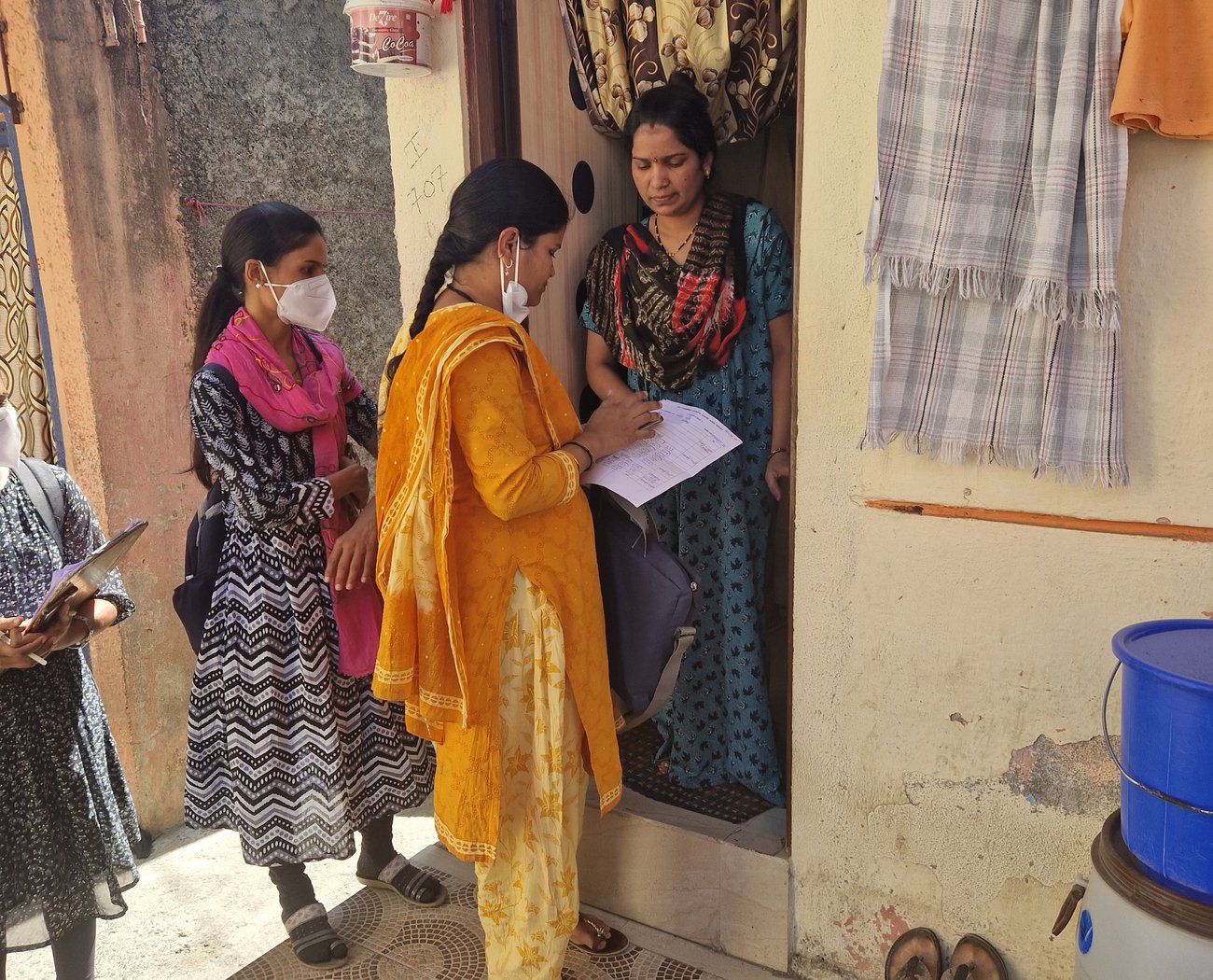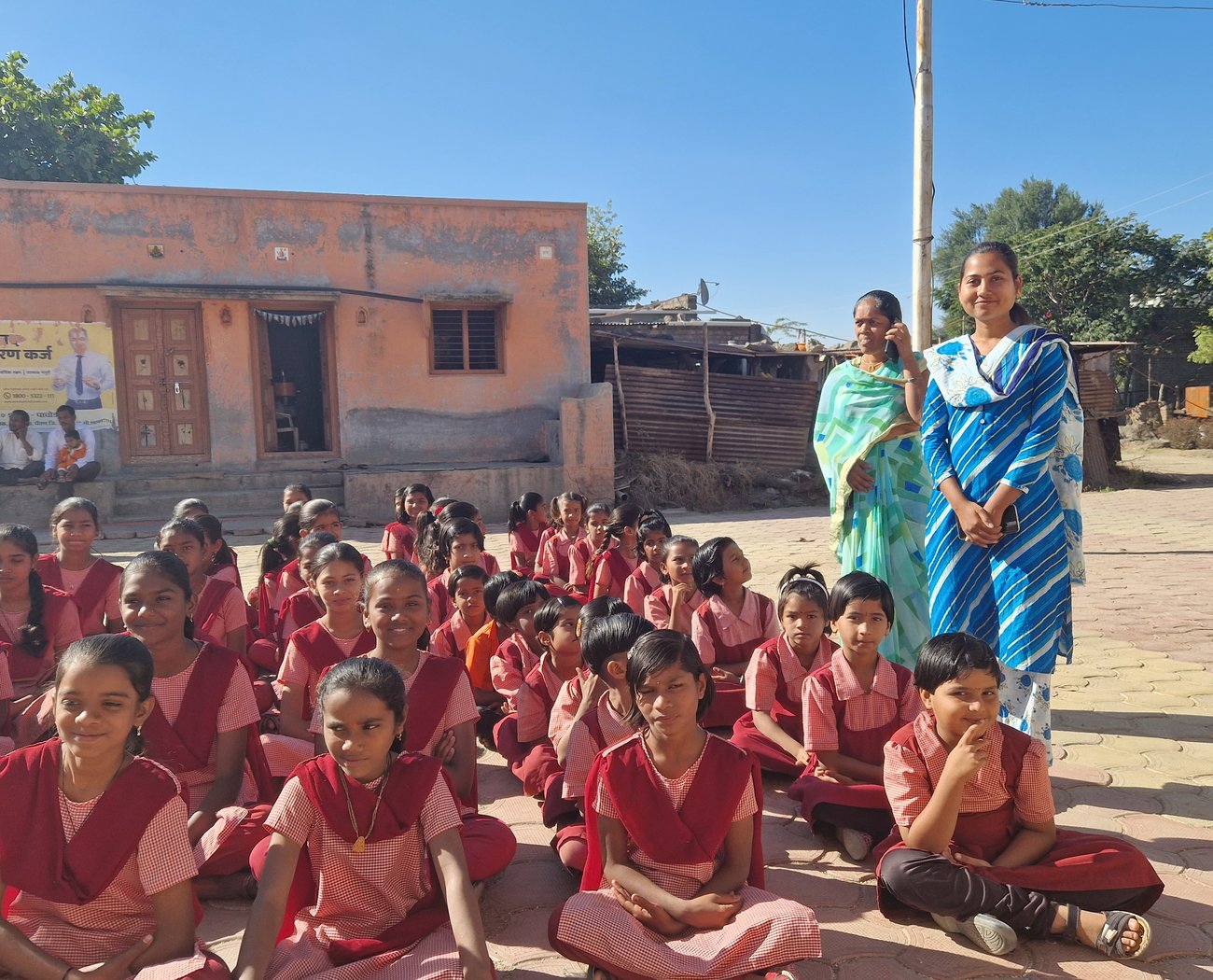The Friends of IHMP (UK)
Promoting the work of the Institute of Health Management Pachod. Registered charity number 1192491.
Donate to Friends of IHMP through Global Giving
Since its inception 45 years ago, the Institute of Health Management, Pachod (IHMP) has been implementing innovative public health programmes with a strong focus on addressing the most pressing health concerns of marginalized and disadvantaged communities in India. The Institute’s primary focus during the last 15 years has been on safeguarding and empowering vulnerable adolescent girls living in rural and urban slum communities.
The Friends of IHMP (UK) aims are to preserve and protect the physical and mental health of young people in India by promoting the work of Ashish Gram Rachna Trust (AGRT), Institute of Health Management Pachod in particular but not exclusively by:
1. Raising awareness of the work of IHMP
2. Raising funds for specific projects carried out by IHMP.
3. Providing support for volunteers working in India.
There are a number of ways you can help:
1. Donate to IHMP to support their projects.
2. Donate to the Friends of IHMP (UK) to provide support to IHMP.
3. IHMP are looking for Interns to help with their analysis of the project work.
Our services have resulted in a significant impact such as measurable empowerment of adolescent girls, delay at the age of marriage and first pregnancy, reduction in maternal and child mortality and in the prevalence of low birth weight babies.

In India, many young women, especially those from underprivileged backgrounds, are subjected to discrimination and are forced into early marriage without the opportunity to complete their education. Some important statistics that emphasize the plight of adolescent girls are: About 1 in 4 girls in India are married before the age of 18 years In high prevalence districts more than 50% are married before 18 years Adolescent girls less than 15 years are five times more likely to die during pregnancy than those in their 20s More than 70% adolescent girls report severe complications during pregnancy 70% of young women in India face domestic violence Girls with secondary schooling are up to 6 times less likely to be married before the age of 18 years Our Story Over the last 45 years, Institute of Health Management Pachod (IHMP) – a non-profit organization has been addressing the most pressing public health concerns of disadvantaged groups in India and has created a lasting impact on the lives and health of over seven million people.
IHMP’s major focus during the last 25 years has been on safeguarding and transforming the lives of vulnerable adolescent girls living in rural and urban slum communities. For married adolescent girls, IHMP provides sexual reproductive health rights and services to reduce adolescent deaths due to early pregnancy, and prevent low birth weight among babies. Our work with over 127,000 married adolescent girls has resulted in a significant increase in contraceptive use, delay in the age at first pregnancy, reduced maternal and child mortality, and babies with low birth-weight. IHMP provides life skills education to unmarried adolescent girls to empower them to make independent life choices, and prevent child marriage.
Our work in this regard has touched the lives of about 103,000 adolescent girls resulting in a significant and measurable increase in their self-esteem, self-efficacy, and a delay in their age at marriage from 14.5 years to 18 years. IHMPs work with 8600 boys and young men has resulted in a measurable change in gender based attitudes and gender inequitable behaviours. IHMPs work has reached 300,000 population among the poor living in urban slums of Pune. IHMP is providing preventive and promotive health services through front line workers and laboratory based diagnostic and curative health services through mobile medical units.

In about 2000 the Institute developed their Adolescent Girls Programme – initially with unmarried adolescent girls and then with married ones. Volunteer village women were trained to teach a group of adolescent girls in each village in the project area for an hour a day at about 5.00pm about health, diet, child rearing and important tasks like dealing with the police, going to the post office and managing conflict. They were taught to be more assertive and to learn new skills. All this was done with their parent’s approval. This resulted in major change with the girls marrying significantly later and their health and the health of their children improving. This project was repeated in the slums of Pune with the same effect. During our visit to India in February 2023 we were privileged to meet a young woman called Aarati who had attended one of these IHMP based programmes in a village a few miles away from Pachod and I thought you would like to learn a bit about her.
Aarati started attending the Lifeskills Education course when she was 14 in the village of Maliwadi. She enjoyed the classes so much she joined every year batch till she was 19 (2020) Her parents gave her permission to attend the LSE programme and they support her with her decisions. She enjoyed all the topics in the LSE, however the topics she enjoyed the most were how to express thoughts and feelings to others and how to decide what we want. Her first school in Maliwadi took her from 1st to 8th standard (up to 12 years old). She then had to go nearest village, which was Pachod, to do her 9th and 10th standard. She had to take a taxi to this school. She then had to go to a junior college in Pachod to do her 11th and 12th standard to study Biology, Chemistry, Physics, Maths and English She wanted to go to another town to study after 12th standard however because of Covid she was unable to go out but was able to complete a computer course. She had wanted to go onto study subjects like pharmacy or computer science but has now decided she would like a career in banking. In the meantime, she has been helping in her village school where she teaches English and other subjects.
Now at the age of 21, Aarati was asked if she will have any involvement in the person she will get married to. She replied: “It is not in my mind right now and yes in the future things like this will happen”. “So will this be your decision to make?” and she says “yes maybe”.:“with input from your parents?” and she says “they will ask my opinion first”.
Contact us to find out more about the work of IHMP and what you can do to help.
Get in touch